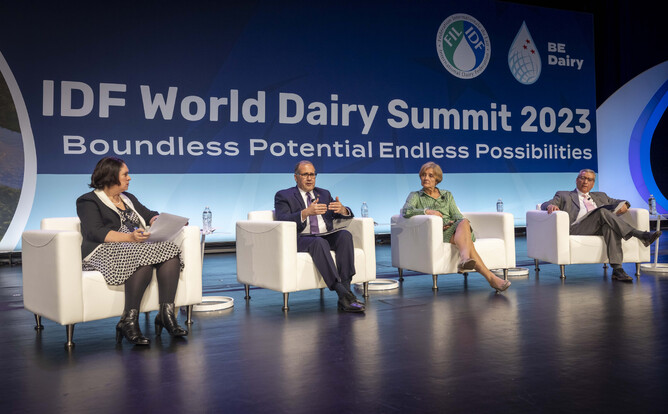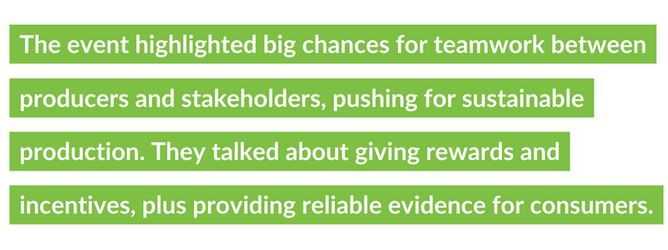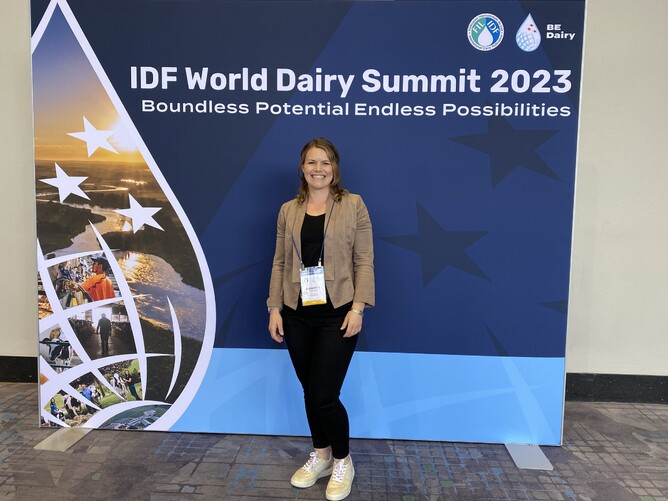Bring up an international event, and Sam already has her bag packed before you finish talking. So, when the chance to attend the International Dairy Federation (IDF) 2023 World Dairy Summit in Chicago popped up, she eagerly seized the opportunity.
Held in October in Chicago, being their fall (autumn) the temperature was similar to New Zealand’s attempt at Spring. The direct flight from Auckland took 16 hours - which sounds terrible but it was easier than landing in LAX and getting a connecting flight.
With a population in the city of 2.6 million people (8.9 million in the entire metropolitan area), it was certainly a lot busier than rural life in NZ.
More than 1200 people showed up at the summit, including 29 who traveled from NZ.
Even though everyone agreed that dairy is a top-notch product, the talks also stressed the need to deal with any worries consumers might have about animal welfare and other possible issues.
The summit will be held in France next year and Chile in 2025. And NZ has successfully secured the hosting of the 2026 World Dairy Summit with planning already underway.
Listen to an interview with REX about the summit --> HERE
Standing Committee meetings
Before the summit are a series of business meetings and various experts from all over the world contributing to the discussions.
Some main messages from the joint Farm Management and Animal Health and Welfare Standing Committee meeting included:
There is a joint ICAR-IDF initiative to develop guidelines to support the adoption of novel technologies/sensor data for improving animal health and welfare. Ensuring there is some independent information available (only product supplier info currently).
A lot of work is going into understanding heat stress and its impacts globally.
A timely review of the antimicrobial-resistance (AMR) guidelines about to get underway.
There is a resilience project kicking off, which will provide examples of mitigations to cope with extraordinary challenges related to climate change or public health stress.
Worldly challenges
In a roundtable discussion, representatives shared the biggest challenges facing their dairy sectors, and many of the challenges we face here in NZ are mirrored all over the world;
Interest rates are impacting a lot of countries! (18% in East Africa!)
Labour challenges
Attracting youth
Climate change - more extreme weather events
Inflation
Fuel costs
Ireland is also transitioning from blanket dry cow antibiotic therapy
USA are implementing biosecurity plans for farms
France are implementing animal welfare assessments on farms by 2025
Chile enhancing requirements around drugs
Denmark has carbon dioxide taxes coming in
Canada & USA animal welfare code is being updated (so is NZ currently)
Japan’s milk consumption has been down since COVID
South Africa struggles with power availability and insecticide resistance
International Dairy Federation: IDF
IDF’s work covers the full spectrum of the dairy supply chain “from grass to glass.” It’s centered around science, providing guidance for standard and regulation-setting through collaborative partnerships and relationships with organsations all over the world.
Established in 1903, the IDF spans over 40 member countries, representing more than 75% of the world’s milk production. Each country has a national committee and the IDF portfolio covers over 160 projects touching all aspects of the supply chain.
Ultimately, IDF is aiming to unify milk and milk production standards globally.
NZ’s involvement
The breadth of issues IDF covers is extensive, from the environment, including greenhouse gas and water, to animal health and welfare, to economics and policies, to food standards, marketing, and nutrition and health. Various standing committees encompassing diverse areas of work are in place, with NZ actively participating across several domains.
NZ is an active participant in IDF, providing expert input into most of the IDF work programmes. New Zealand must be at that table to influence our position since we’re pretty unique with our pasture-based farming.



